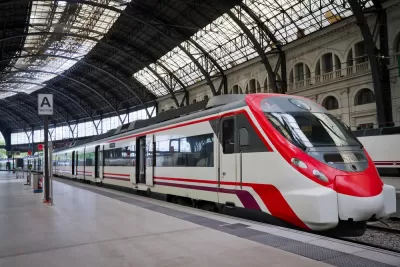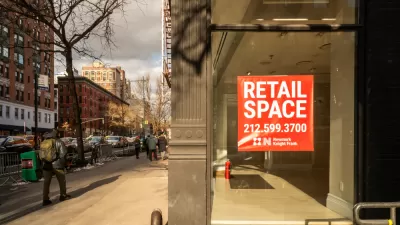A new United Nations Secretary-General's High-level Advisory Group on Sustainable Transport identifies policies that can result in inclusive and equitable growth, social development, protection of the global environment and ecosystems.

The High-level Advisory Group on Sustainable Transport works with governments, transport providers (aviation, marine, ferry, rail, road, and urban public transport), businesses, financial institutions, civil society and other stakeholders to promote sustainable transport systems and their integration into development policies. Their report, "Mobilizing Sustainable Transport for Development: Analysis and Policy Recommendations from the United Nations Secretary-General's High-Level Advisory Group on Sustainable Transport" includes numerous examples and case studies from around the world, and identifies specific strategies to create more inclusive and equitable growth, social development, protection of the global environment and ecosystems, and addressing climate change.
It states, "Sustainable transport is a driver of sustainable development and a means by which people can access what they need to live full and fulfilled lives. All actors— governments, business, civil society, and individuals— must make a genuine commitment to transforming the transport system in terms of individual travel and freight into one that is safe, affordable, accessible, efficient, and resilient, while minimizing carbon and other emissions and environmental impacts."
The group submitted the following ten recommendations:
- Make transport planning, policy and investment decisions based on the three sustainable development dimensions—social development, environmental (including climate) impacts and economic growth—and a full life cycle analysis.
- Integrate all sustainable transport planning efforts with an appropriately-balanced development of transport modes: integration vertically among levels of government and horizontally across modes, territories and sectors.
- Create supportive institutional, legal and regulatory government frameworks to promote effective sustainable transport.
- Build technical capacity of transport planners and implementers, especially in developing countries, through partnerships with international organizations, multilateral development banks, and governments at all levels, to ensure equitable access to markets, jobs, education and other necessities.
- Reinforce efforts toward preventing road traffic deaths and injuries.
- Foster an informed, engaged public as a crucial partner in advancing sustainable transport solutions.
- Establish monitoring and evaluation frameworks for sustainable transport, and build capacity for gathering and analyzing sound and reliable data and statistics.
- Promote diversified funding sources and coherent fiscal frameworks to advance sustainable transport systems, initiatives and projects.
- Increase international development funding and climate funding for sustainable transport.
- Promote sustainable transport technologies through outcome-oriented government investment and policies that encourage private sector investment and action through various incentive structures.
FULL STORY: Mobilizing Sustainable Transport for Development

Planetizen Federal Action Tracker
A weekly monitor of how Trump’s orders and actions are impacting planners and planning in America.

Maui's Vacation Rental Debate Turns Ugly
Verbal attacks, misinformation campaigns and fistfights plague a high-stakes debate to convert thousands of vacation rentals into long-term housing.

San Francisco Suspends Traffic Calming Amidst Record Deaths
Citing “a challenging fiscal landscape,” the city will cease the program on the heels of 42 traffic deaths, including 24 pedestrians.

Amtrak Rolls Out New Orleans to Alabama “Mardi Gras” Train
The new service will operate morning and evening departures between Mobile and New Orleans.

The Subversive Car-Free Guide to Trump's Great American Road Trip
Car-free ways to access Chicagoland’s best tourist attractions.

San Antonio and Austin are Fusing Into one Massive Megaregion
The region spanning the two central Texas cities is growing fast, posing challenges for local infrastructure and water supplies.
Urban Design for Planners 1: Software Tools
This six-course series explores essential urban design concepts using open source software and equips planners with the tools they need to participate fully in the urban design process.
Planning for Universal Design
Learn the tools for implementing Universal Design in planning regulations.
Heyer Gruel & Associates PA
JM Goldson LLC
Custer County Colorado
City of Camden Redevelopment Agency
City of Astoria
Transportation Research & Education Center (TREC) at Portland State University
Jefferson Parish Government
Camden Redevelopment Agency
City of Claremont





























